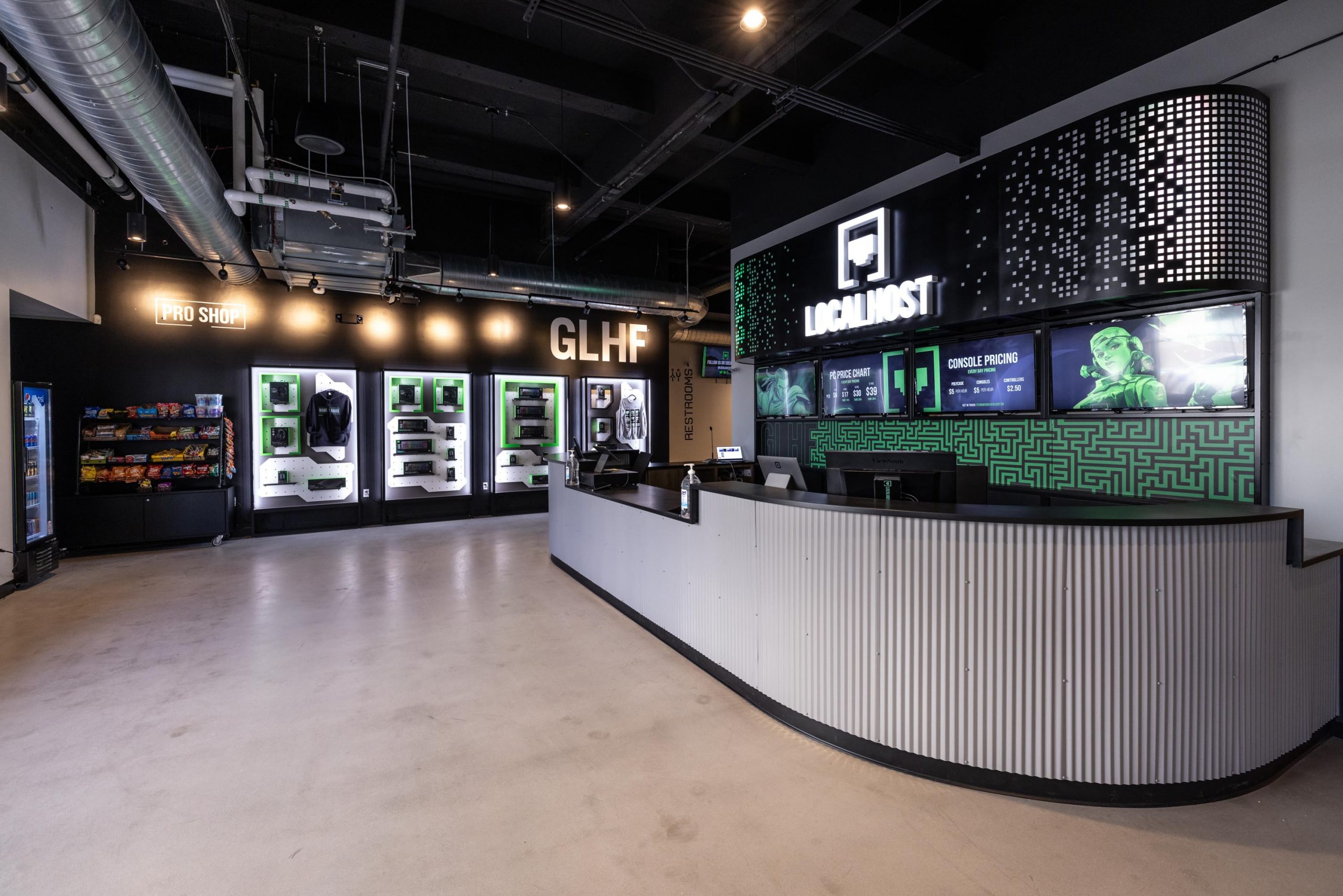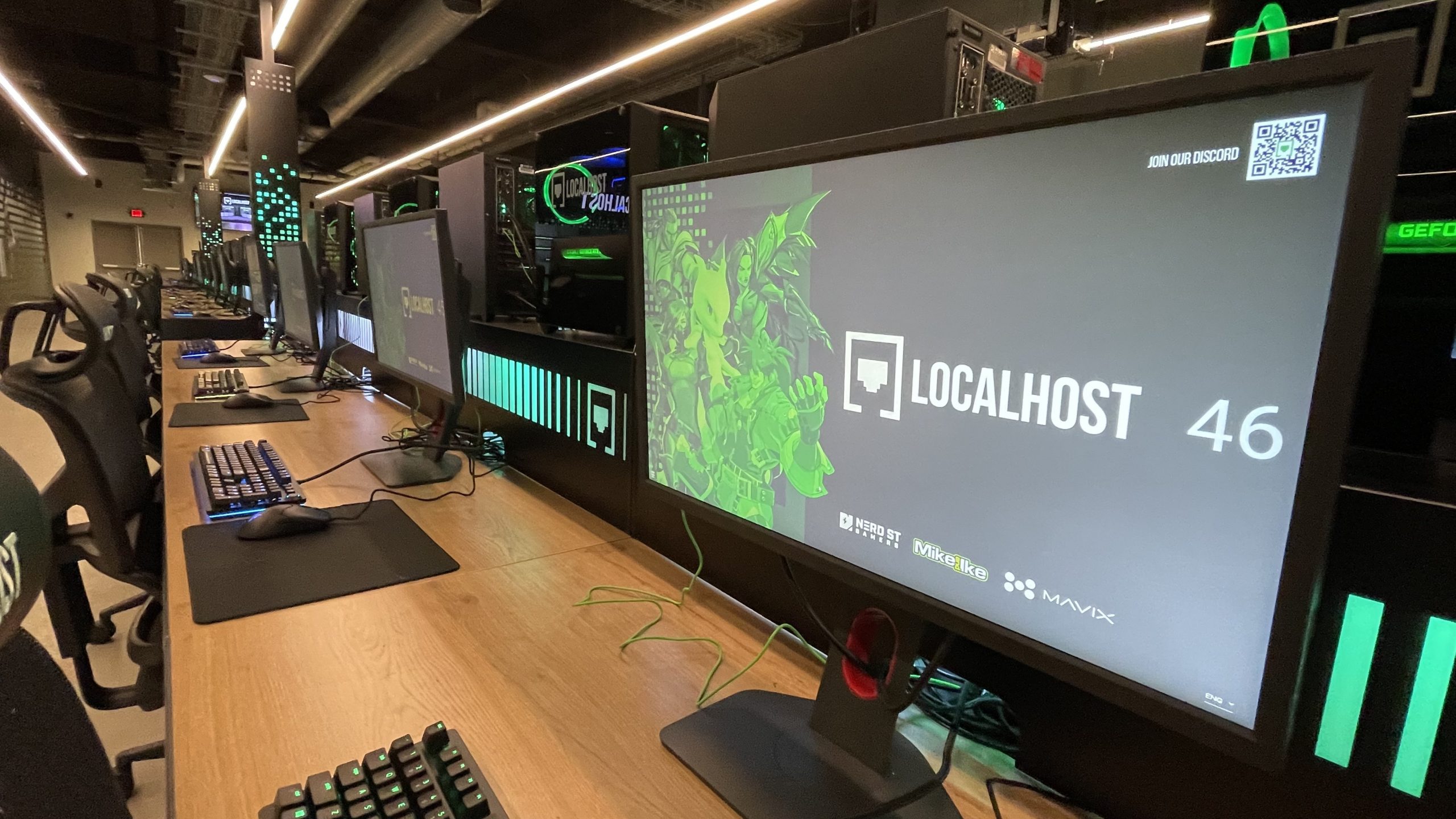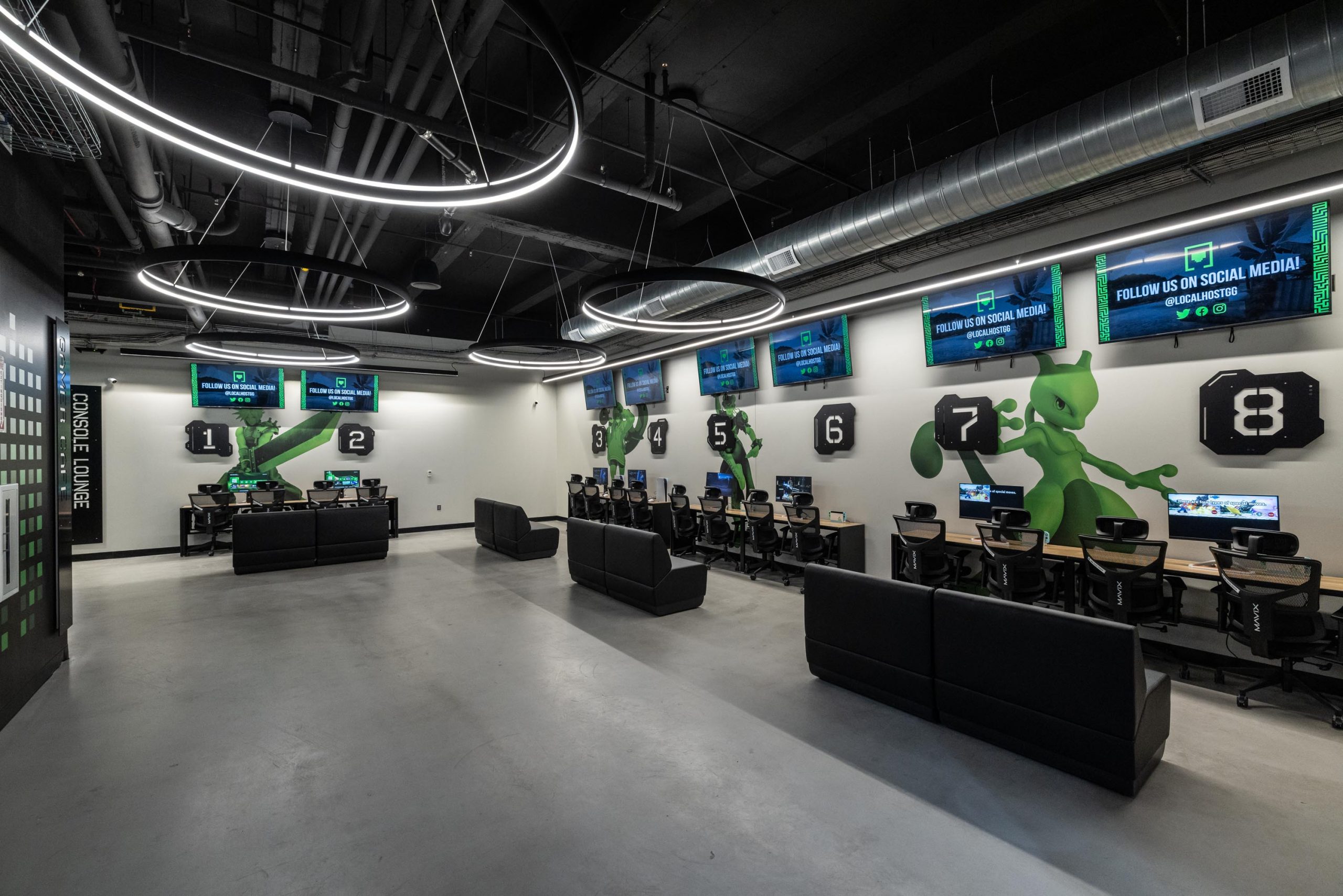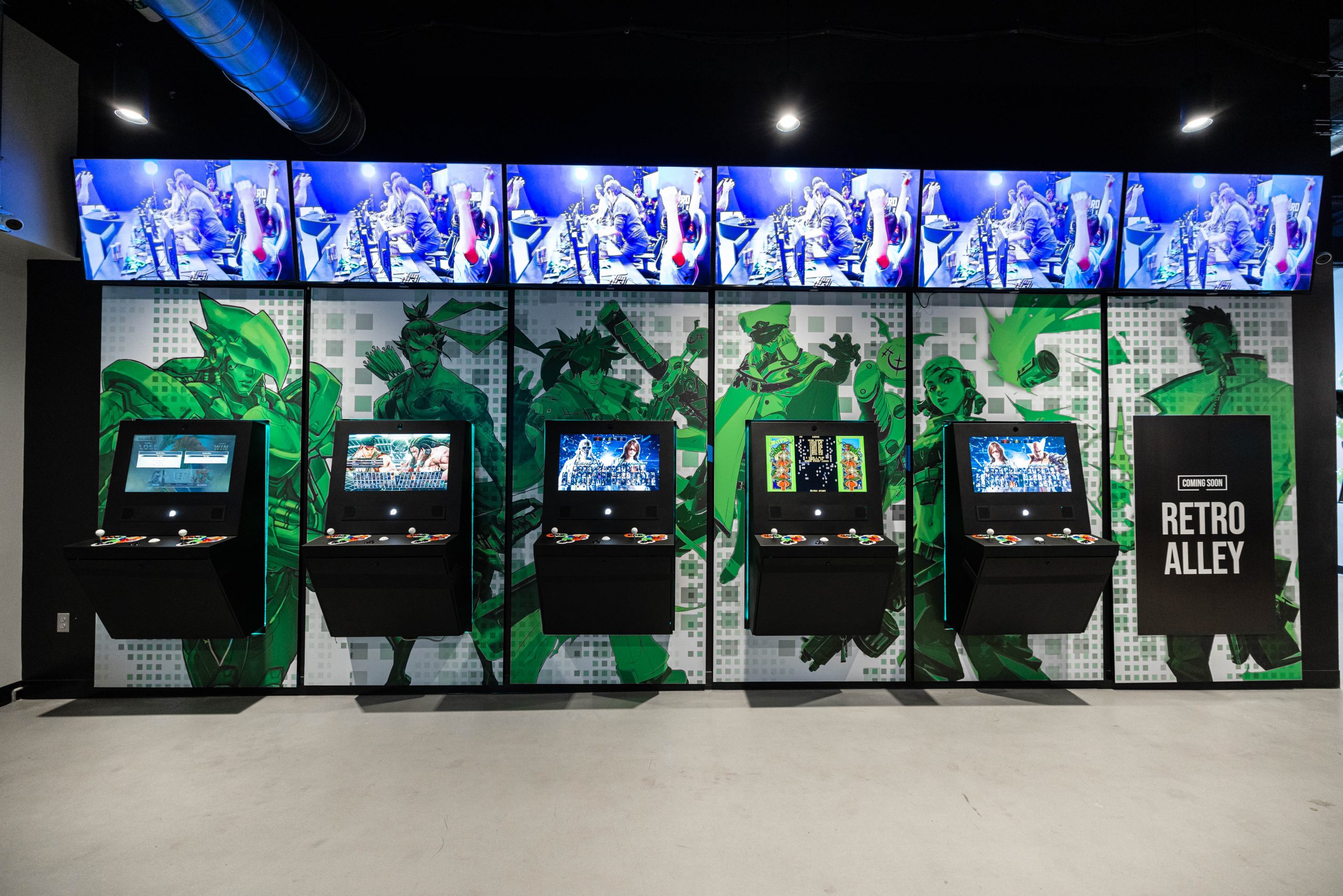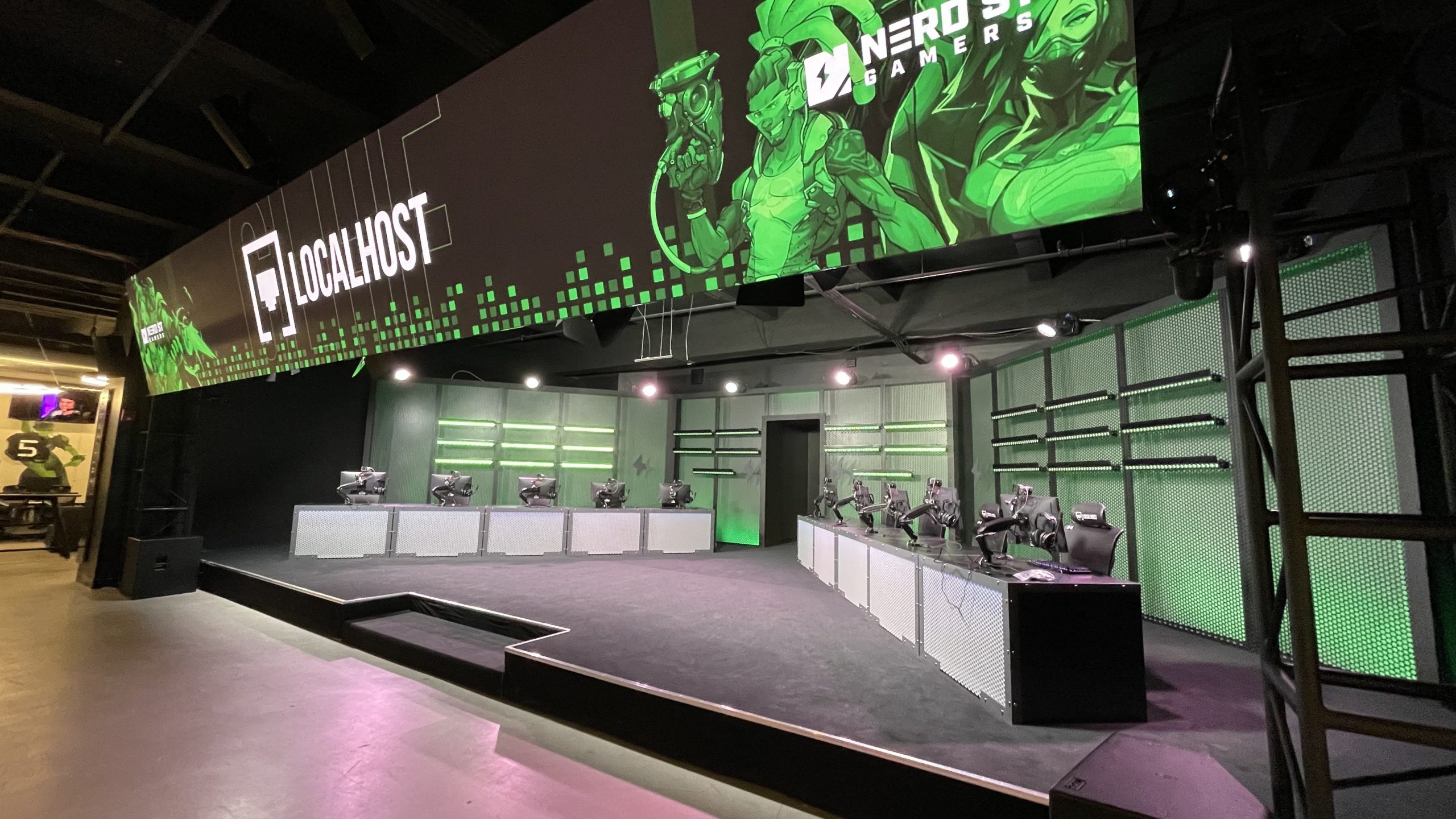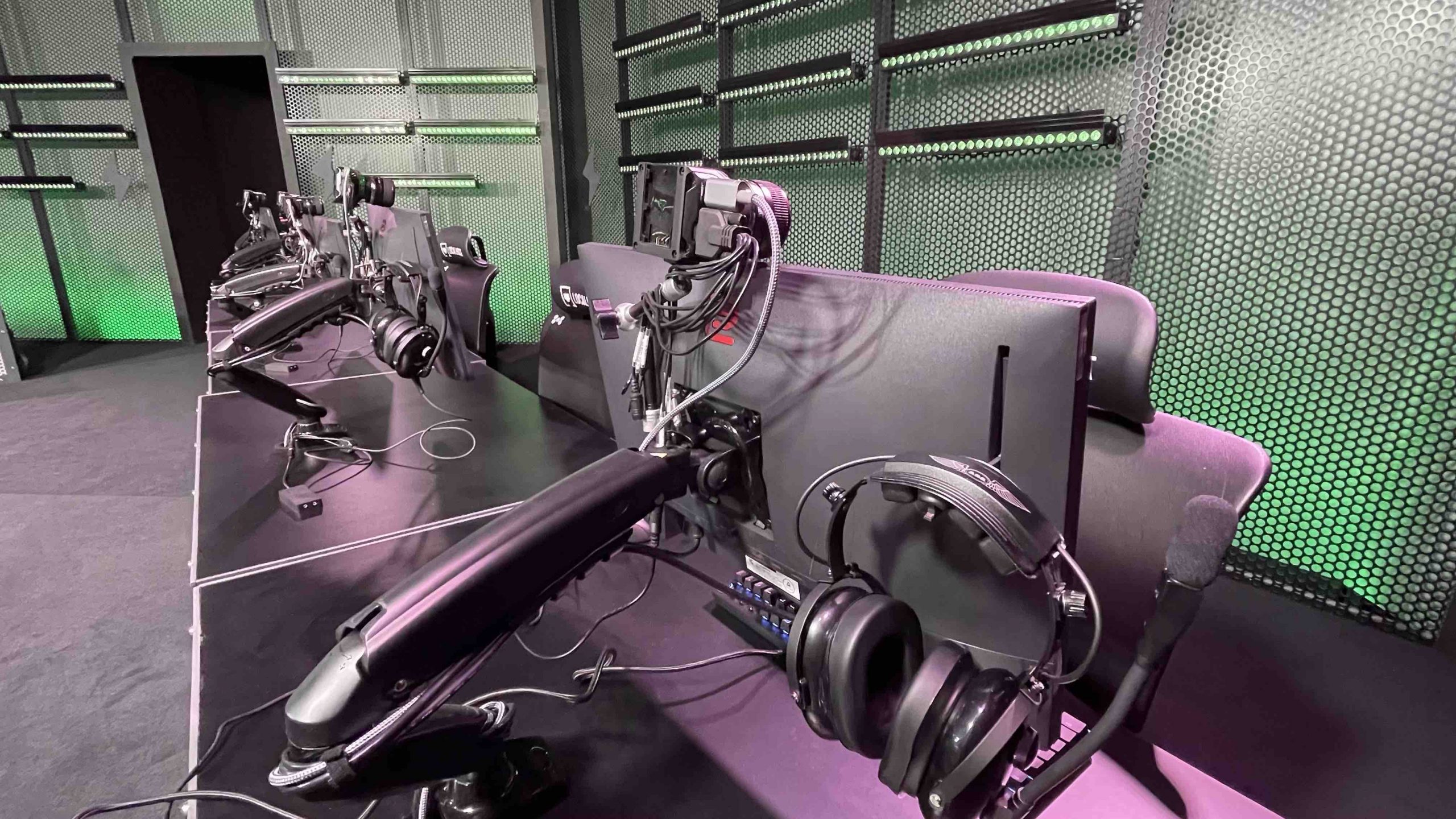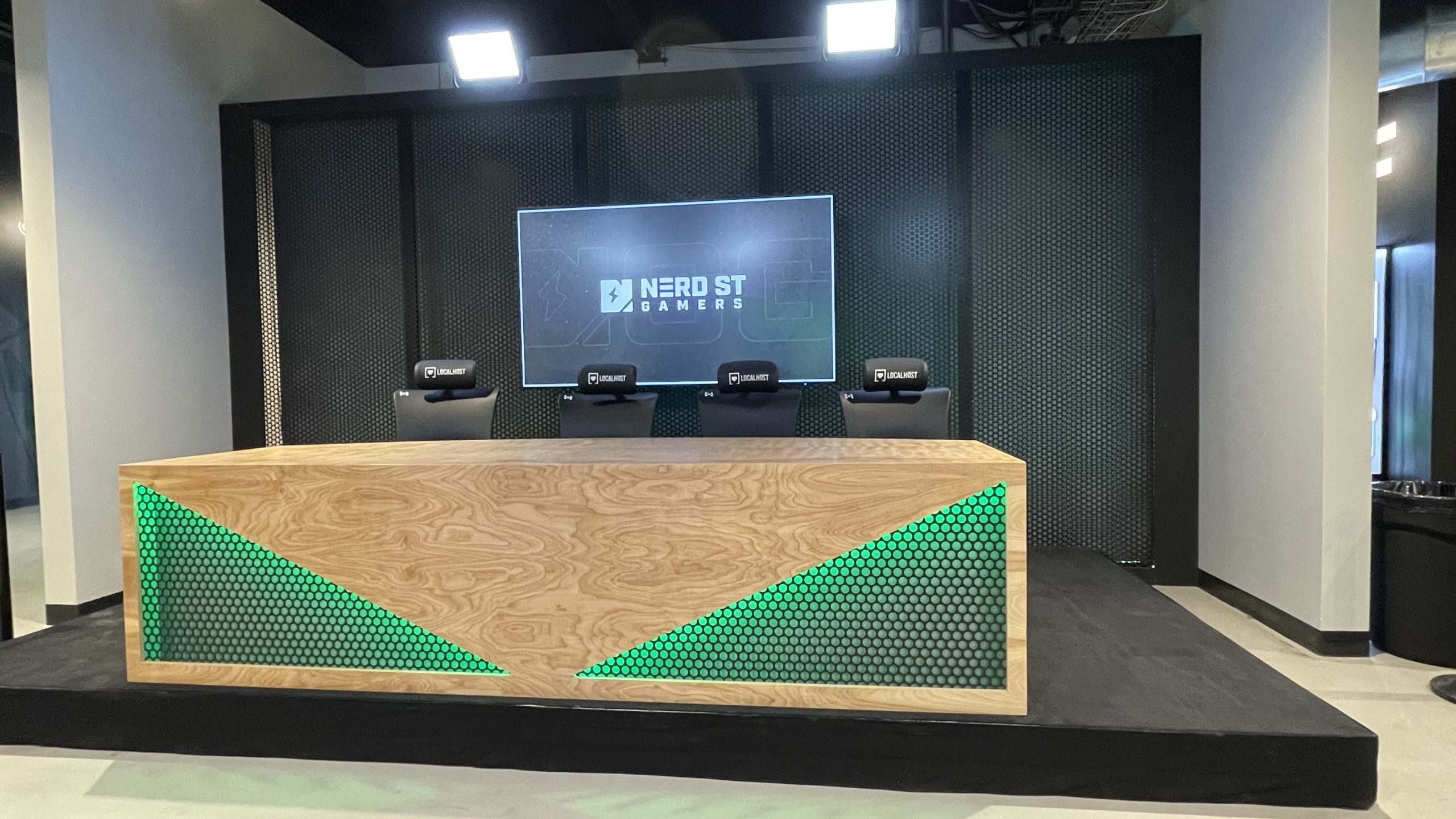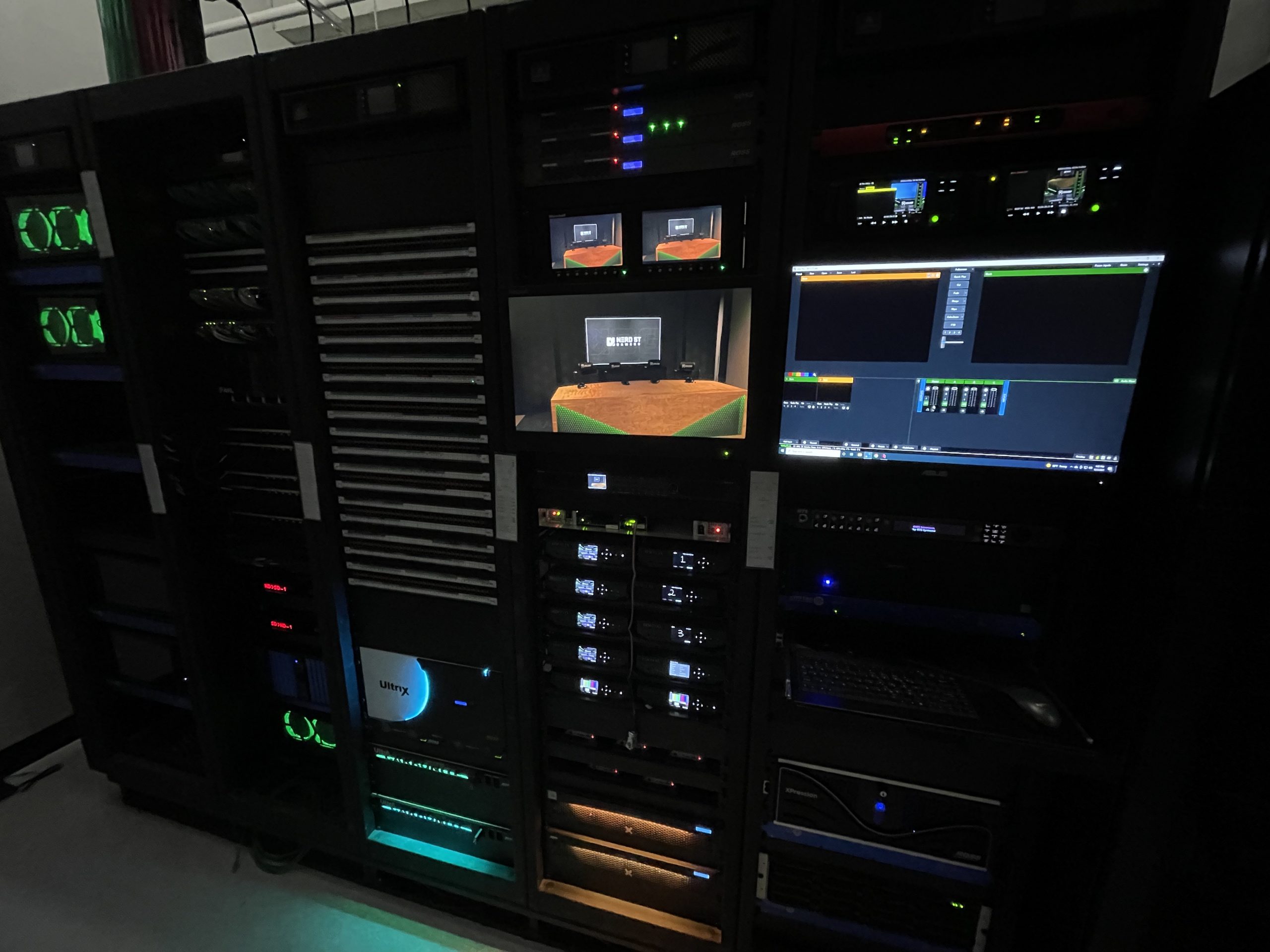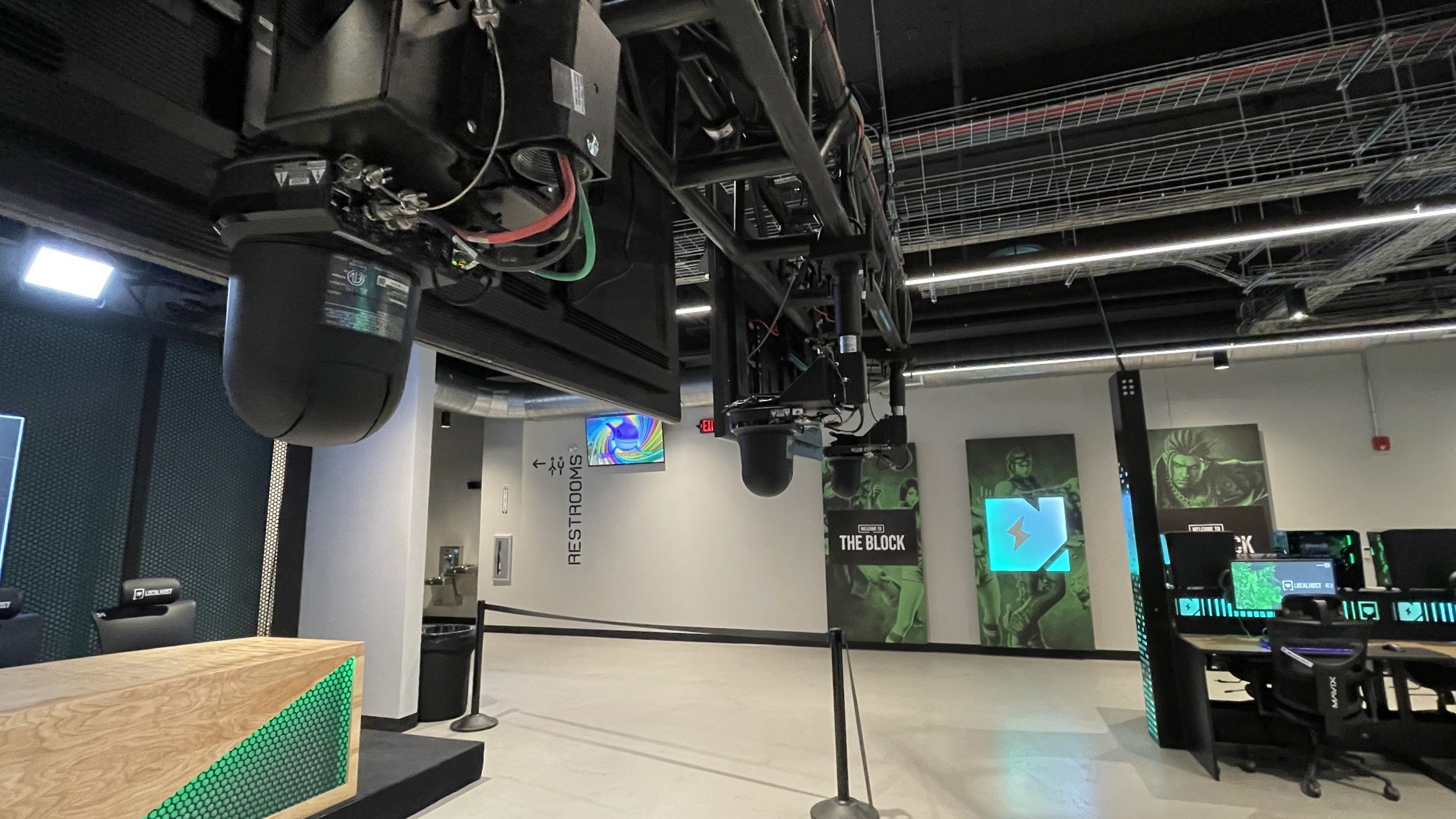Nerd Street Gamers Targets Local Esports Community With ‘The Block’ in Philadelphia
The facility houses a public esports training center, studio space, company offices
Story Highlights
Throughout the COVID-19 pandemic, the esports genre has made headlines for quickly adapting to the situation and adjusting to working in remote locations. Many leagues adopted cloud-based solutions to keep their business afloat and replace their normal LAN events, but one company, Nerd Street Gamers, went full bore on a brick-and-mortar project in the heart of Philadelphia.
Occupying an entire city block from Broad and Callowhill Streets (thus, the name), The Block is a 40,000-sq.-ft. esports campus that can house in-person competitions within a 20,000-sq.-ft. gaming space, studios for original content, team headquarters, and more.
“The goal is to be a flagship and a connector between the top and bottom of the industry,” says John Fazio, CEO/founder, Nerd Street Gamers. “More important, there’s a whole group of gamers in the city that don’t have a place to participate in competitions, so we want to expand the community to include more people in it.”
Blank Canvas: Empty Warehouse Becomes Esports Paradise
Nerd Street Gamers’ new home is in a building that has been used for various purposes throughout the years. During World War II, the edifice housed a car-manufacturing plant producing jeeps for both the European and Pacific theaters. After the war, the building provided a show floor on which a local car dealership showcased the hottest wheels in Philadelphia. In the 1960s and ’70s, the once-flourishing place for citizens to purchase automobiles decayed into a vacant area that no one was using.
“It was in pretty rough shape,” says Anthony Perno, VP, real estate and business development, Nerd Street Gamers. “When it closed down, the main space was never occupied.”
Nerd Street Gamers used this abandoned portion of the building to host the NCS Grand Finals 2019 @ Fragadelphia 14 on a temporary basis. The space remained empty even after this high-profile event, and, looking to enhance the future of the entity that he had founded, Fazio moved to turn this underdeveloped plot of land into something bigger.
“The building owners approached us,” he says. “At the time, we were looking for a different kind of place. We were looking for something a little bit more freestanding, but, as we searched, [the location] became more and more perfect for us.”
Unlike with other esports centers built in existing facilities, the team was able to start from scratch without many distractions. Not having to worry about an existing occupant’s clearing space and getting in the way was a positive, but COVID-19 was a significant hindrance. Timelines were altered, and a realistic opening date had to be rescheduled after an 18-month delay. For Perno and his team and the crew at facility designer Populous, though, the biggest hurdle to overcome was the side effects of the pandemic.
“Supply-chain issues were brutal,” Perno explains. “I couldn’t put everything into place without large elements like cabling but also smaller elements like flexible air ducts for HVAC. From a grander standpoint, [the pandemic] has impacted the entire industry because of the number of people we can have in a room.”
Broadcast Tech: Powerful Connectivity, Live-Streamed Production, LAN Events
Despite the disruption caused by the pandemic, the new project had an advantageous location in regard to latency. Occupying the upper floors of the building, the largest Netrality Data Center has the fastest internet connection on the Eastern Seaboard. For any esports company, landing this spot in the U.S. is akin to finding buried treasure.
“Every major company from New York City to Washington, DC, has server racks running through this building,” says Todd Berman, VP, media, Nerd Street Gamers, “but, for competitive gaming and broadcast purposes, it’s extremely needed. There’s a 10G pipe coming in here, so having the infrastructure to make sure we have a high level of redundancy is pretty amazing.”
Head of content for this new venture, Berman has the experience of building something from the bottom up. A seasoned executive who spent more than a decade at NBC Sports Philadelphia, he has been allowed to attack productions from a different angle.
“With what we’ve done here, everything is coming through our facility,” he says. “I no longer have the need for a truck, and, as a result, I can reduce the cost of content creation.”
This shift in thinking has propelled technological and broadcasting equipment to the forefront. The central gaming area, also known as the Localhost, features 180 stations with the latest gaming PCs, keyboards, and mouses. One mission of the Localhost is to provide an environment that encourages amateur gamers from the city to convene and hang out.
At a grassroots level, Fazio has begun an afterschool program that allows younger students to use the amenities for one hour free of charge. The program offers a safe space for young kids to enjoy esports and provides access to the internet for those who don’t have Wi-Fi at home. Other portions of the Localhost include a lobby to buy merchandise and snacks, a gaming lounge with couch-style seating for groups, and “Retro Alley” to play Tekken, Street Fighter, Centipede, and other arcade games.
At a grander level, large-scale productions of some of the biggest brands in esports — Counter-Strike, League of Legends, Rocket League — have taken place at The Block. For such events, the rows of gaming systems are moved to make room for ample attendee seating in front of the main stage. Featuring two long tables and 10 stations boasting Blackmagic POV cameras, the stage is in front of a backlit wall and beneath a massive LED display. In the back of the gaming space and running parallel with the main stage, a play-by-play desk sits in front of a similar backlit wall. For a schedule packed with competitions, the main components of this setup highlight the needed flexibility of the Localhost.
“We want to be able to economically, efficiently, and timely turn the Localhost over for multiple tournaments,” says Berman. “Whether it be something under our umbrella or for a third party, we can change the look, color, and feel depending on what property is being played.”
As an added layer of versatility, the crew has a wide variety of cameras and solutions to power any and all presentations. For example, seven Panasonic PTZs are stationed throughout the Localhost to cover the entire area with minimal physical effort. For more of a boots-on-the-ground approach, the team can use a Panasonic 4K handheld camera for wireless coverage.
In the control room, linear broadcasts on networks like ESPN and NBC Sports as well as live streams for digital outlets are powered by a trio of Ross Video products: Carbonite switcher, Ross XPression graphics, and Mira replay. With lots of robotics and interconnected devices, Berman and his staff have the ability to produce either in the control room or remotely. The control room can accommodate four observers, two editors, a replay operator, an A1, a PTZ-camera operator, and a director; if necessary, observers and editors can connect to the room through vMix, Discord, and other communications solutions.
“There is not a one-size-fits-all model for every event,” notes Berman. “It comes down to the size and scope of the event.”
Center for Content: Studio Shows, Team Practice Rooms
Like a basketball team warming up for a game with layups, esports squads need ample room to get their hand/eye coordination and strategy in order before it’s time to play. Because any given series within a single tournament can go on for an extended period, while two teams are duking it out, two other teams can use separate rooms near the main stage to practice.
One esports organization, the Susquehanna Soniqs, will call The Block home for the next five years. Fielding teams participating in Rainbow Six Siege, Rocket League, VALORANT, and PlayerUnknown’s Battlegrounds, it will become the first professional esports entity at the campus. In addition to the public practice rooms, the Soniqs will use nearly 2,900 sq. ft. for three large team training rooms, two offices, three streaming rooms, and a VOD review and conference room.
Besides the competitive gaming, Nerd Street Gamers is producing original programming as well as content surrounding events hosted at The Block. On the second floor of the facility, a small triangular studio with a green screen — which was completed this month — will be another hub of live-streamed or digital material for fans.
“It’s always fun to build,” says Berman, “but it’s even more fun to build from the ground up in a way that other people haven’t done before. There are other [esports] facilities that I’ve seen that aren’t as flexible, and we were able to do it at a lower cost, within a shorter amount of time, and with a larger pattern of growth. I couldn’t be prouder of the team.”
Room for Expansion: Plans Include Additional Studio Space, Corporate Headquarters
There has been immediate success in the short term, but the team has its sights set on further expansion within the footprint for long-term success. Internally, the crew is working on the fifth floor for expanded office space, more editing bays and server closets, and three unique studio sets. Externally, the Soniqs headquarters will eventually reside in the building until its five-year deal expires. Both projects will be completed in mid 2022.
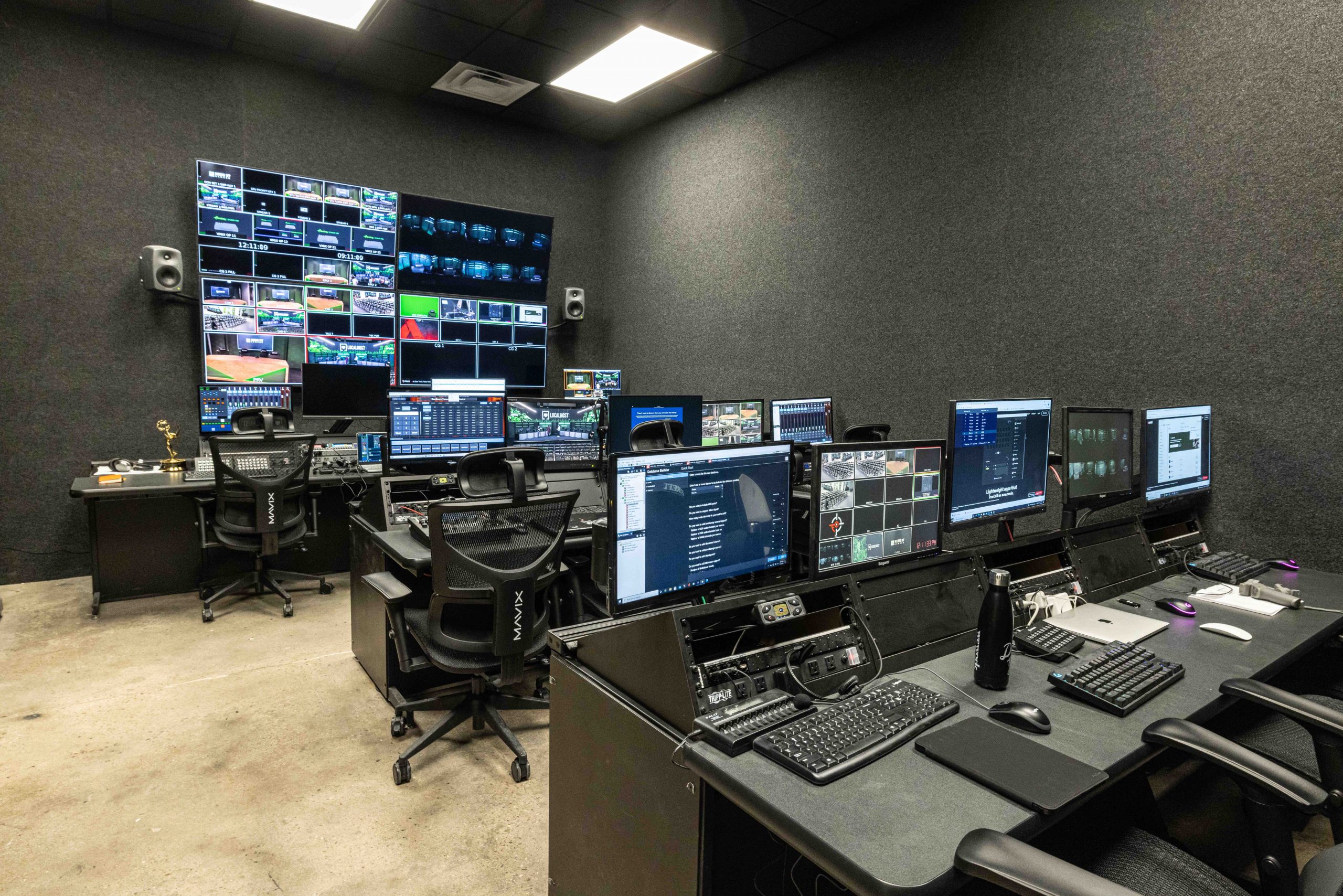
The control room is producing events for teams participating in Counter-Strike, League of Legends, Rocket League, and others.
An expansion project on top of new construction is a difficult task in itself, but, when it comes to implementing additional workspace while being mindful of technological needs, it’s a bit of a learning curve.
“Normally, I’m used to building space for people and computers separately,” Perno explains. “Spreading out outlets and designing them on different circuits to avoid tripping [electrical] breakers become critical on something like this.”
Although more structural work is still to be done, getting to this point is a shining achievement. Perno and Populous might have been at the forefront of the construction and design, but the folks working every day were the beating heart of the effort.
“It’s a testament to the vendors and contractors that we utilized on this job,” Perno says. “We used a lot of suppliers that source and manufacture material from the U.S. — including FKB in Philadelphia and Scungio Borst & Associates in Camden, NJ — in order to not have a lot of shipping concerns. Both did an incredible job pulling together our architects.”
More Than Gaming: Nerd Street Gamers’ Investment in the Community
The doors were officially opened to the public on Nov. 8, and already the building has become a bustling center of esports activity. Most recently, the Philadelphia facility and a Localhost in Fullerton, CA, hosted the bicoastal VALORANT Tournament Dec. 18-19. Along with this in-person event, The Block has seen an increase in overall community attendance. Whenever the pandemic subsides and even more normalcy begins to creep back in, Nerd Street Gamers aims to have The Block as revered a venue as iconic Madison Square Garden.
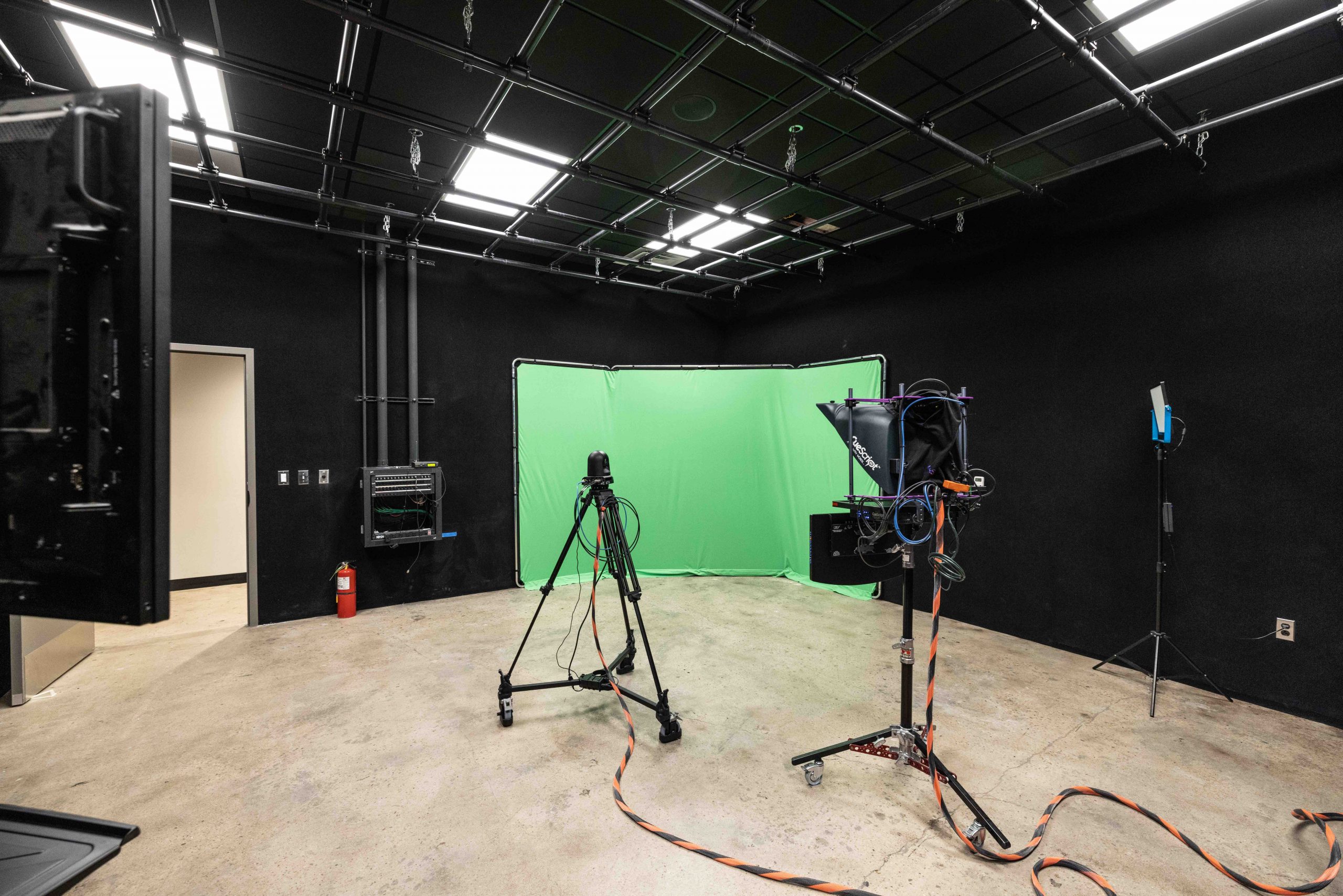
On the second floor of The Block, a triangular studio with a green space generates original content.
“We’re going to be at the center of the esports industry,” says Fazio. “Overwatch League and Call of Duty League teams need a place to play after the pandemic is over. As those start to develop, I think we’ll be looked at similarly as older sports venues that have a history of championships.”
Having started as a 17-year-old who came up with this idea while working at an internet café in a mall, Fazio considers that goal worth fighting for. Besides striving for a legacy, he wants The Block to be known as a proving ground for kids wanting to experience whatever life has to offer — both inside and outside esports.
“The most rewarding part is that we’re generating real opportunities,” he says. “Kids who started playing in our tournaments five or six years ago have gotten college scholarships or professional deals. I’m incredibly proud, and it’s an awesome thing that we’re creating here.”
